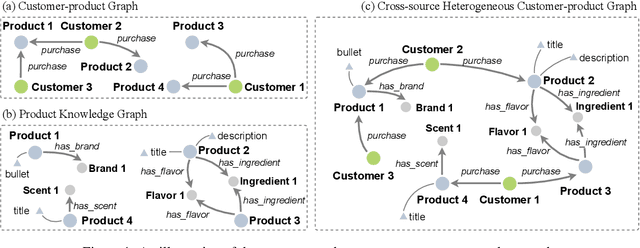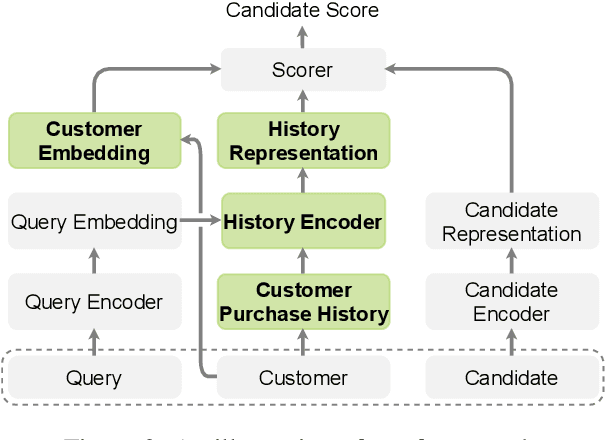Personalized Entity Resolution with Dynamic Heterogeneous Knowledge Graph Representations
Paper and Code
Apr 14, 2021



The growing popularity of Virtual Assistants poses new challenges for Entity Resolution, the task of linking mentions in text to their referent entities in a knowledge base. Specifically, in the shopping domain, customers tend to use implicit utterances (e.g., "organic milk") rather than explicit names, leading to a large number of candidate products. Meanwhile, for the same query, different customers may expect different results. For example, with "add milk to my cart", a customer may refer to a certain organic product, while some customers may want to re-order products they regularly purchase. To address these issues, we propose a new framework that leverages personalized features to improve the accuracy of product ranking. We first build a cross-source heterogeneous knowledge graph from customer purchase history and product knowledge graph to jointly learn customer and product embeddings. After that, we incorporate product, customer, and history representations into a neural reranking model to predict which candidate is most likely to be purchased for a specific customer. Experiments show that our model substantially improves the accuracy of the top ranked candidates by 24.6% compared to the state-of-the-art product search model.
 Add to Chrome
Add to Chrome Add to Firefox
Add to Firefox Add to Edge
Add to Edge